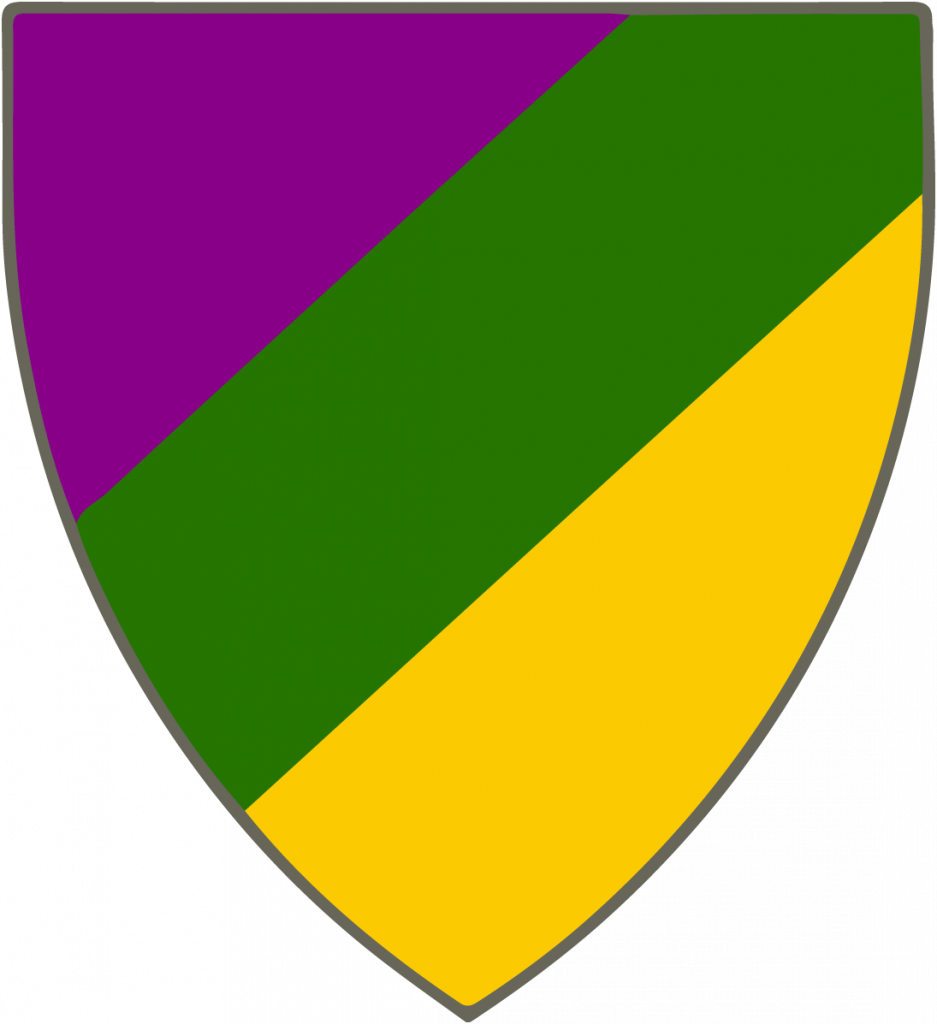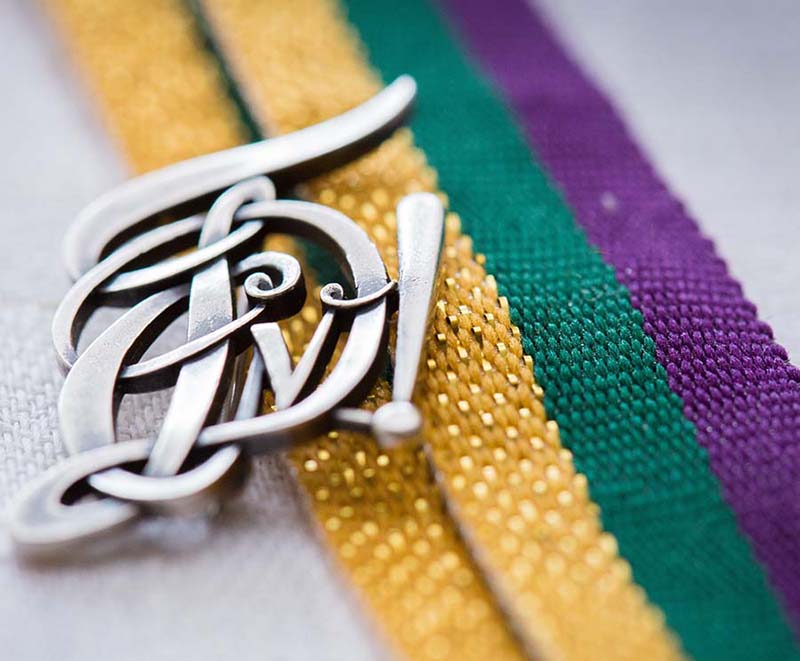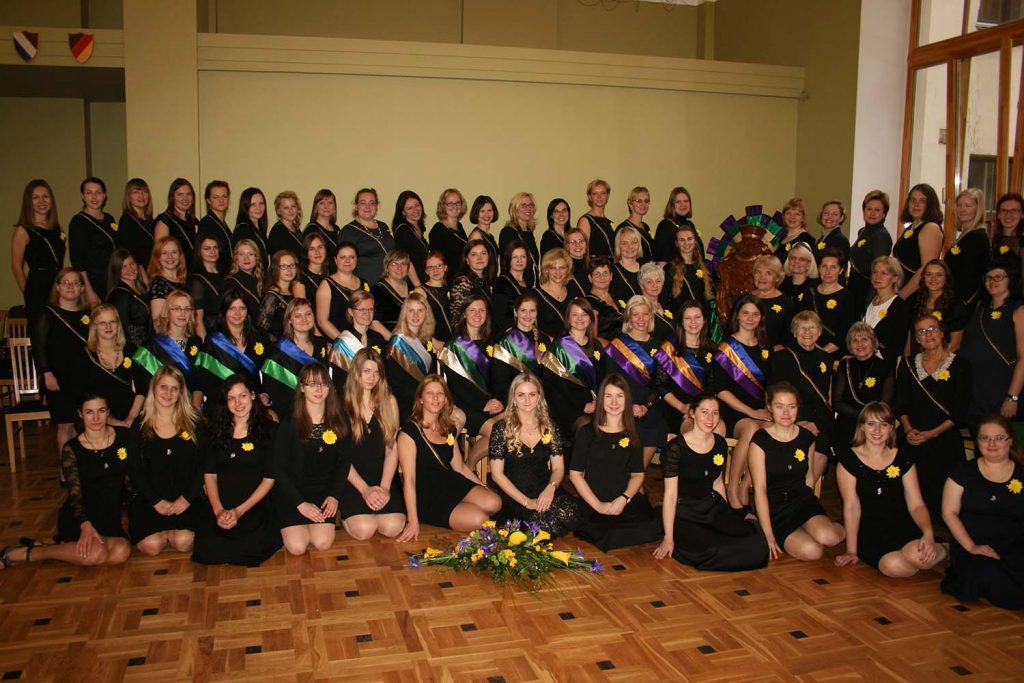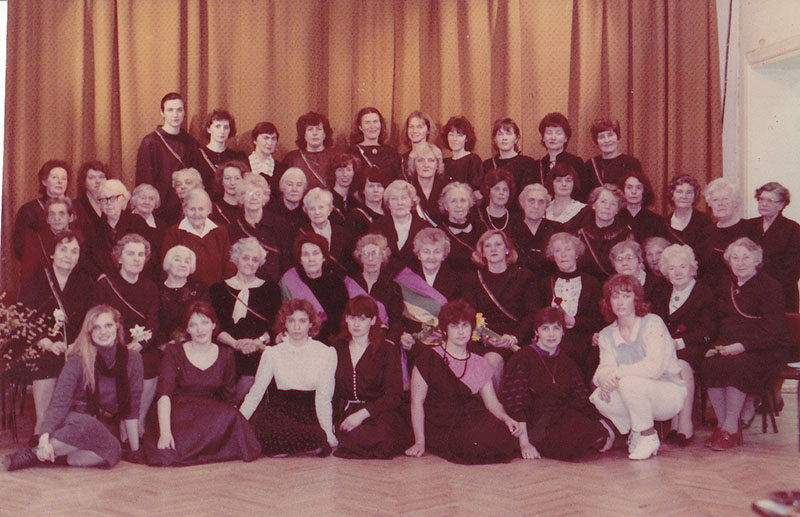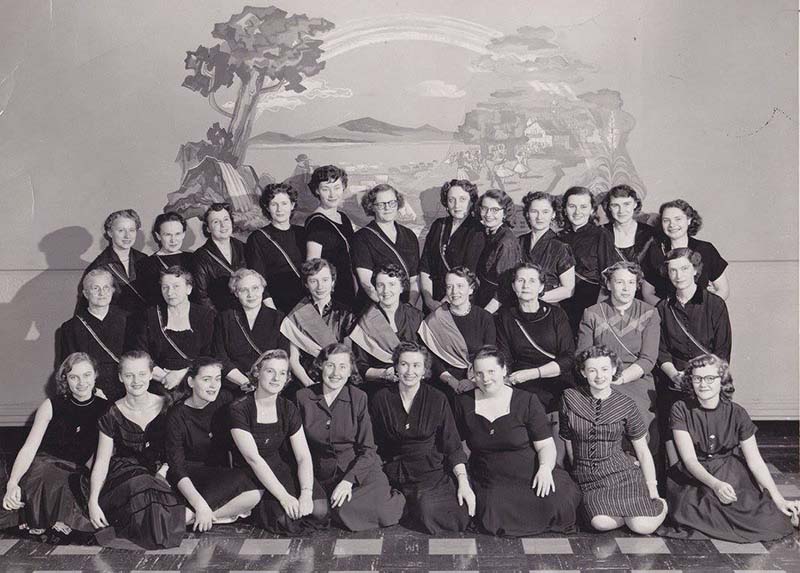About Daugaviete
Daugaviete is a sorority founded on November 6, 1921, at the University of Latvia in Riga. Prohibited during the period of Soviet rule, Daugaviete renewed its activity in Latvia in November 1989.
Contact:
Address: ‘Studenšu korporācija Daugaviete’ Brivibas Street 74-22 (entrance from Stabu Street), Riga LV 1011 Latvia (map)
More contact info: here.
Colours: violet, green, gold (their symbolic meaning is explained in Daugaviete’s anthem).
Mottos:
- Pars pro toto! [One for all!]
- Par taisnību, daiļumu un visu cēlu! [For justice, beauty and all that is noble!]
- Patientia vincit omnia! [Patience wins all!]
Daugaviete’s aim is to bring together Latvian women university students who are nationally inclined and loyal citizens, help them become honourable and active members of society and promote their intellectual and physical development. The sorority’s task is to instil in its members a sense of honour and duty, and to further their interest in science, the arts and physical activity.
The name of Daugaviete originated from the name of Latvia’s largest river, the Daugava, envisaging that, just as the Daugava unites Latvia’s towns and rural areas, so the new sorority should unite women students from all the regions of Latvia; just as the Daugava flows ever onwards, eternally changing and vibrant, so should the sorority’s young students bring life and creativity to all they encounter.
Daugaviete is a closed, lifelong organization in which discipline and traditions play an integral part. Its members may not join organisations that oppose the Latvian state or national objectives. Relations between the members of Daugaviete are governed by seniority, friendship and mutual assistance.
Daugaviete was the first sorority to be founded in Latvia, and as such it was the first organization in the newly formed state to accept only women as its members. Society reacted harshly to this new idea and the sorority’s founders had to face a good deal of intolerance, misunderstanding and contempt. With their aims, achievements and behaviour they had to prove that Latvian women were not only able to perform the duties of a housewife but also hold responsible positions in society.
The 19 young and inexperienced founders of Daugaviete realised that, to further their ideals, it was important to gain support from prominent members of society. A number of well-known people who supported their ideas agreed to become honorary members.
Among the first to be invited were two doctors, Dr. Zelma Cēsniece-Freidenfelde and Dr Olga Rode-Dzelzskalēja, two women noted for their work and national stance. Two prominent professors of the University of Latvia, both also members of the fraternity Lettonia, Prof. Voldemārs Maldonis (Dean of the Faculty of Theology) and Prof. Ernests Felsbergs (Rector) also agreed to support the new organization.
The idea of an organization uniting women students was also supported by Anna Brigadere, a well-known Latvian writer who expressed the aspirations of the young students and their struggle to realize them in the text of the sorority’s anthem.
They also enlisted the support of Dr. Gustavs Reinhards, the leader of the Temperance Movement and also a member of Lettonia, because it was very important for Daugaviete to disassociate itself from the negative stereotypes prevailing in society and to emphasize that the new organization, although similar to fraternities, would not be masculine in character and behaviour.
Other women studying at the University of Latvia soon followed Daugaviete’s example and founded other sororities, and an umbrella organization, the Sorority Presidium, was formed in December 1924.
For some 30 years Daugaviete and the other sororities enjoyed a stimulating internal life as well as playing an active role in society. The tragic events of 1940, however, completely shattered the life of Daugaviete. Together with the whole Latvian nation it became a victim of Soviet occupation – Daugaviete and other student organizations were banned and their activities violently interrupted.
During the German occupation of Latvia, Daugaviete managed to operate unofficially but – with the impending return of Soviet forces – many Latvians, including many members of Daugaviete, chose to flee the country rather than face death or deportation. Many of these members arrived in refugee camps in Germany.
The life of Daugaviete in exile began in May 1948 when its activity was renewed in Pinneberg, where the Baltic University had gathered together a number of former University of Latvia professors and lecturers (many of them members of fraternities and sororities) and a large number of young Latvians, who wished to study and belong to Latvian student organizations. The first new members of Daugaviete in exile were admitted in 1953. With the former members of the sorority now scattered all over the world, a total of 22 groups of Daugaviete in exile were established and these not only continued to uphold the traditions of Daugaviete, but also aimed to strengthen the Latvian language skills and national consciousness of their members.
Most of these groups continued to work until 1989. After many decades of banned activity, with the political situation in Soviet Latvia still unclear yet looking hopeful, the members of Daugaviete in Latvia grasped the long-awaited moment and renewed their activities in November 1989. The first group of 17 new members was admitted in March 1990. In November 1995, commemorating the tragic fate of its members deported to Siberia, Daugaviete admitted as an honorary member Melānija Vanaga, a Latvian writer who also suffered deportation and wrote a memorable account of her time in Siberia.
After renewing its activity in Latvia, Daugaviete began to form links with student organizations outside Latvia. In 1992 Daugaviete visited the sorority Neo-Lithuania, in 1995 a friendship agreement was signed with the Finnish sorority Keskisuomalainen Osakunta, in 1997 – with the oldest Estonian sorority Filiae Patriae.
Although founded many decades ago, Daugaviete’s aims and activities still attract many young students today and groups of members are admitted every year.

